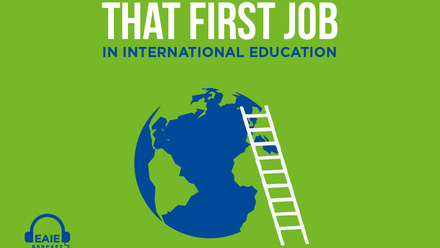Developing critical thinking and ethical global engagement in students

What do students need to know and be able to do when they graduate? Will they be able to work collaboratively to address complex global problems? These questions address one of the core purposes of international education: preparing a globally competent workforce, and, more importantly, globally competent human beings. This blog dives into just how to instill these skills in international students.
Higher education institutions and employers agree that critical thinking, as well as ethical reasoning and decision-making, are necessary skills to have and be able to translate into action. Acquisition of critical thinking and ethical reasoning skills and opportunities to apply these skills in globally relevant contexts (eg study abroad, exchanges, service learning, advocacy and activism on their campuses) has the potential for deep, meaningful, high-impact experiences that will better prepare students to be active and globally competent individuals. Both critical thinking and ethical reasoning are teachable skills that students can and should learn.
Developing critical thinking
Critical thinking involves thoughtful and systematic processing of information so that we can better understand the complexity of issues and make sounder decisions. A critical mind is a questioning mind. Hence, critical thinking develops through an inquiry-based learning process. Asking essential questions and posing problems or scenarios inspire a quest for knowledge and problem solving. Consider the following questions:
A critical mind is a questioning mind.
- What does ‘global community’ mean to you? Why is sustaining it important (or not)?
- How is one’s worldview (beliefs about self, others and the world) formed and transformed?
- Why is polarisation of worldviews on the rise in the world today?
- How can we shift the dynamic of how individuals with different, sometimes opposing, worldviews relate to each other?
Seeking answers to questions such as these is fundamental to understanding ourselves, others and the larger world, and being a change agent. However, in tackling collaborative problem-solving in the global context, students also need to be aware of the complexity of issues from multiple perspectives. They need to acquire dialogue skills, understand another’s point of view, be aware of one’s own assumptions, be self-aware and other-aware, and engage meta-cognitive skills (thinking about one’s own thinking). The ability to invite individuals with a different worldview from their own into a process of transformation and problem solving by listening closely to their perspectives is an integral part of dialogue and critical thinking. Furthermore, the ability to regulate one’s own emotions in the times when our core beliefs are being challenged is a fundamental skill for globally competent citizens.
Developing ethical global engagement
Ethical reasoning is an applied and teachable critical thinking skill, often enriched through international education. Cross-cultural experiences prompt encounters with difference, thereby causing cognitive dissonance and providing opportunities for a deeper application of ethical reasoning in real life.
One applied ethical reasoning programme offers a unique way of developing ethical reasoning skills for higher education students. Some of the characteristics of this programme follow:
Ethical reasoning develops over time
The development of ethical reasoning skills and mindful engagement with ethical dilemmas require guided learning and sustained practice over time. Learning and practicing ethical reasoning skills through case scenarios where the learner is placed in the role of decision-maker provide opportunities to internalise the ethical reasoning process and encourage automatic application in real life situations.
Engaging in inquiry before making a decision
Humans tend to justify their conduct and decisions after they have acted or made a decision. The goal of ethical reasoning education is to get better in ethical decision making, rather than in justifying previous conduct or decisions. Hence, developing ethical reasoning skills in students requires engaging them in inquiry, in asking as many questions as possible relevant to the ethical dilemma, before making a decision.
Inquiry process in groups yields richer learning experiences
We all have preferred values that guide ethical decision-making (eg some may give preference to outcomes, while others to fairness or responsibility). For this reason, practicing ethical decision-making in a group provides richer learning experiences and potentially better-informed ethical decisions. Fostering the inquiry process in a group opens new ways of thinking, moves one beyond self-interest, and introduces consideration of others, community and multiple stakeholders in a decision-making process.
Self-awareness and metacognitive skills are necessary for ethical global engagement
Self-awareness and the ability to think about our own thinking are key to developing critical thinking and ethical reasoning in students. Specifically, the ability to recognise and separate one’s personal biases or self-interests is important for making decisions. Reflection about aspects of one’s identity (both privileged and oppressed), assumptions we hold about communities with which we are engaging, and ways we interpret what we observe, lead to greater self-awareness. Educators also need to reflect critically on a variety of ethical issues (eg how we teach, what dilemmas/case studies we choose, issues of power, etc) as well as on the process through which we guide students.
A call for action
In the current global political climate, when polarisation of beliefs and conflict between the worldviews are growing, higher education institutions have a paramount task: the consideration of how we are developing critical thinking and engaging students in ethical reasoning. We need to focus more strongly on developing these skills and making sure that the next generations acquire skills necessary to be globally competent citizens. The ability to engage with diverse worldviews while addressing complex global problems is vital to the sustainable relationships and systems in the world today.






